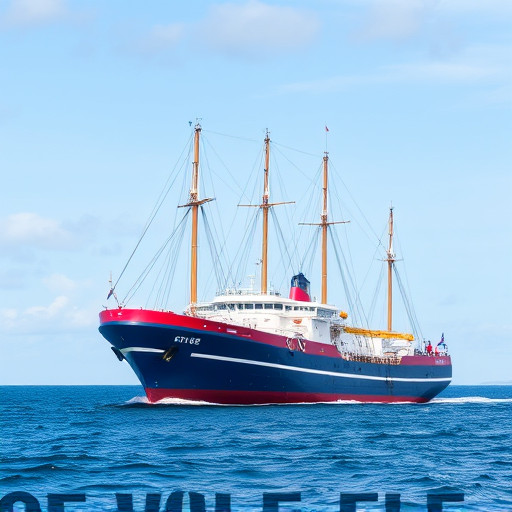Maritime Operations: From Navigation to Safety
This text provides an overview of core ship operations, focusing on propulsion, steering, and stability. It highlights the evolution from traditional navigation tools to modern technologies like GPS, radar, and AI, which enhance accuracy and safety. Ship propulsion systems are explored, covering various engine types and propeller designs for efficient motion. The discussion extends to the unique relationship between AI and human creativity, examining its potential to augment artistic fields while preserving human originality. Finally, maritime travel is categorized by distance and vessel type (coastal, ocean, riverine), each facing distinct challenges like weather conditions and regulatory compliance, met through advanced technology and safety protocols.
Introduction: Unveiling the World of Ships and Maritime Adventures
The vast oceans have always been a realm of mystery and opportunity, driven by the ships that traverse their waters. This article aims to provide an insightful journey into the diverse world of maritime operations, exploring the fundamentals and complexities of ship functionality. From understanding the basic principles of navigation to delving into the various types of vessels and their specialized roles, we will uncover the secrets of modern shipping. Furthermore, we’ll examine the technological advancements that power these ships, the life aboard for crews, and the unique challenges faced during different maritime journeys.
- The Basics of Ship Operation
- Diverse Types of Ships and Their Roles
- Navigational Tools and Modern Technologies
- Powering a Ship: Engines and Propellers
- Life Aboard: Crew, Cabins, and Safety
- Different Types of Maritime Journeys
- Challenges and Safety Measures at Sea
The Basics of Ship Operation
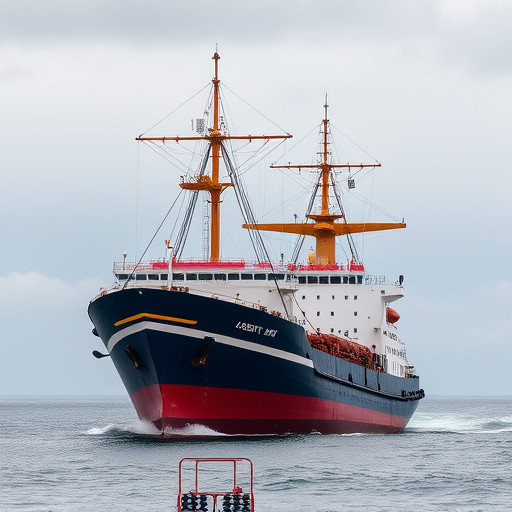
The operation of a ship involves a complex interplay of various systems and processes, all designed to ensure safe and efficient navigation. At its core, ship operation hinges on three primary functions: propulsion, steering, and stability. Propulsion refers to the mechanism by which a ship moves through water, typically achieved through engines or sails. Modern ships predominantly rely on internal combustion engines, ranging from diesel to gas turbines, for forward motion.
Steering, or navigation, is the ability of a ship to change its course. This is accomplished through various systems such as rudders and thrusters, which allow the vessel to turn, stop, or reverse direction. Stability is crucial for maintaining balance and preventing capsize; it’s achieved through careful design considerations like hull shape, ballast systems, and the placement of cargo and passengers. Effective ship operation also demands constant monitoring and adjustment of these systems to adapt to changing weather conditions, sea states, and operational requirements.
Diverse Types of Ships and Their Roles
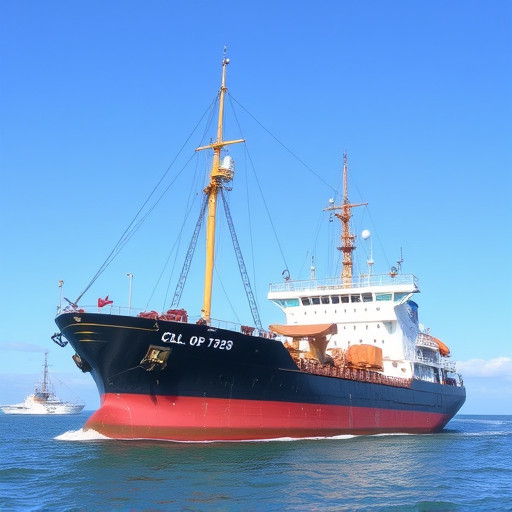
The maritime world is filled with a surprising variety of ships, each designed for specific roles and tasks. From massive cargo vessels that traverse the oceans, carrying goods across continents, to sleek high-speed ferries connecting coastal towns, each type of ship plays a crucial part in global trade and travel.
Cargo ships, such as container ships and bulk carriers, are workhorses of the sea, transporting vast amounts of cargo including containers, grain, and raw materials. Tankers transport oil and other liquids over long distances, while cruise ships offer luxurious getaways for vacationers. Research vessels explore the oceans, contributing to scientific discoveries, while naval ships defend coastal regions and ensure maritime security. Each of these diverse ships utilizes advanced technologies, from sophisticated navigation systems to powerful propulsion mechanisms, enabling them to navigate the vast expanse of water and carry out their unique missions effectively.
Navigational Tools and Modern Technologies
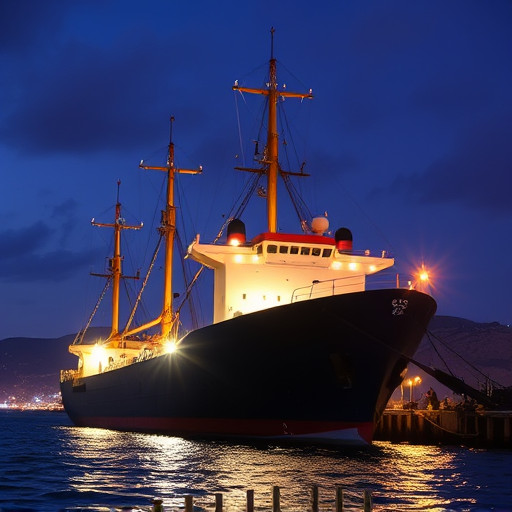
Navigational tools have evolved significantly over time, transforming from basic compasses and star-gazing to sophisticated modern technologies. Today, ships rely heavily on Global Positioning System (GPS) for accurate positioning and navigation. This satellite-based system provides real-time data, allowing captains to determine their ship’s location, speed, and course with remarkable precision. GPS is assisted by other tools like electronic charts, radar systems, and inertial navigation systems, which together offer a comprehensive view of the vessel’s surroundings.
Beyond these fundamental technologies, modern ships also employ advanced data analytics and automation. Remote sensing technologies, such as lidar and multispectral imaging, enable high-resolution mapping of coastal areas, ports, and other critical navigation points. Additionally, artificial intelligence (AI) is increasingly integrated into ship operations, enhancing safety by predicting potential hazards, optimizing fuel efficiency, and improving overall decision-making processes. These modern technologies not only enhance the accuracy and speed of navigation but also contribute to a safer and more efficient maritime experience.
Powering a Ship: Engines and Propellers
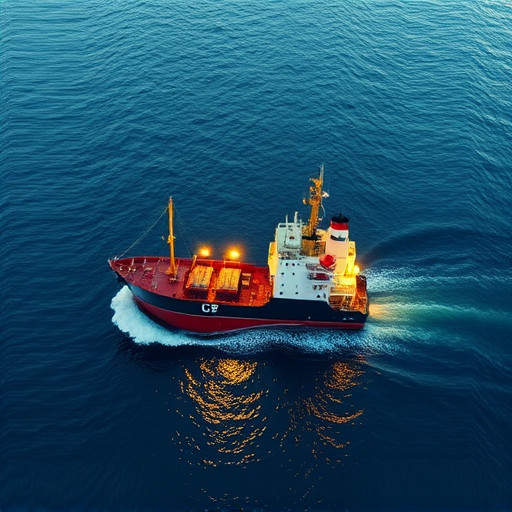
Powering a ship is a complex process that involves various systems working in harmony to propel it through the water. At the heart of this system are engines and propellers, which convert fuel energy into forward motion. The type of engine used can vary greatly depending on the specific needs of the ship—from traditional diesel and gasoline engines to more advanced electric motors.
Propellers, usually located at the rear of the vessel, play a crucial role in converting the rotational force from the engine into linear thrust, allowing the ship to navigate through the water. The efficiency of this process is influenced by factors like propeller size, shape, and speed, which are carefully calibrated for optimal performance. Modern ships often incorporate advanced technologies like variable-pitch propellers and dual propellers for improved maneuverability and fuel efficiency.
Life Aboard: Crew, Cabins, and Safety
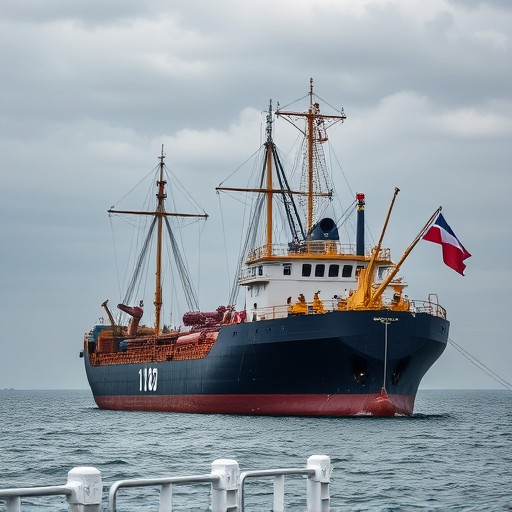
Different Types of Maritime Journeys
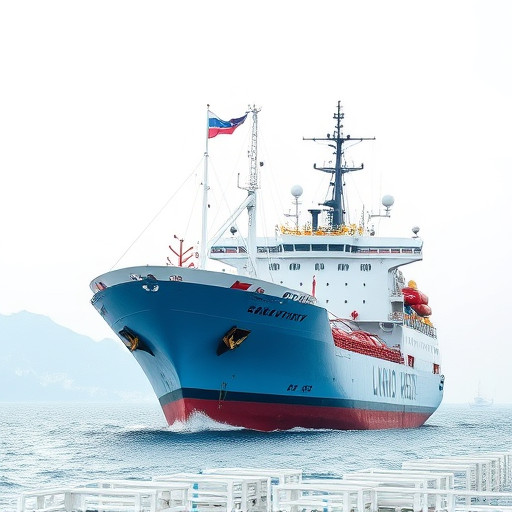
Maritime journeys can be categorized into several types based on factors such as distance, purpose, and the type of vessel used. One of the most common distinctions is between coastal and ocean voyages. Coastal sailing involves navigation along a country’s shoreline, often within sight of land, and is typically shorter in duration. These journeys are crucial for regional trade, tourism, and fisheries. On the other hand, ocean crossings or long-distance travel refers to voyages that traverse vast expanses of open water, connecting continents and countries across the globe. These routes demand greater endurance from both ship and crew, requiring meticulous planning and robust navigation systems.
Another type of maritime journey is riverine navigation, which takes place on rivers and inland waterways. This mode of transportation is vital for domestic trade, especially in regions with extensive river networks. Conversely, deep-water voyages focus on large bodies of water like the world’s oceans, where specialized vessels such as cargo carriers, tankers, and container ships ply their trade. Each type of journey presents unique challenges, from dealing with unpredictable weather conditions to ensuring safety while adhering to international maritime regulations.
Challenges and Safety Measures at Sea
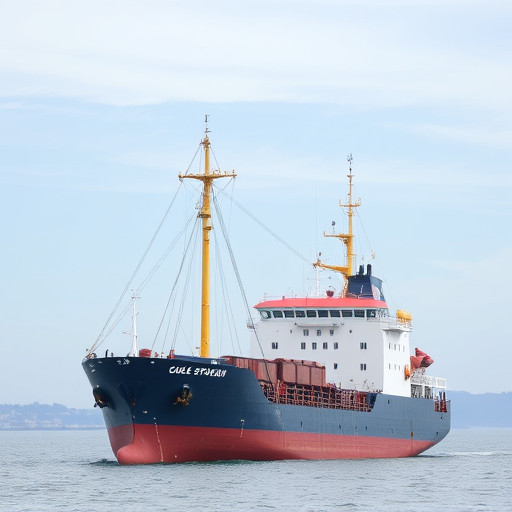
Navigating the vast expanse of oceans presents unique challenges due to the harsh marine environment. Ships must confront formidable obstacles such as unpredictable weather patterns, strong currents, and limited visibility during storms or dense fog. Additionally, maritime areas are vast, making real-time tracking and communication crucial for safety.
To address these issues, modern ships are equipped with sophisticated navigation systems, including GPS, radar, and advanced weather forecasting tools. Strict safety protocols and international regulations, like those enforced by the International Maritime Organization (IMO), ensure that vessels maintain safe speeds, follow designated routes, and carry adequate safety equipment. Furthermore, continuous advancements in ship design, such as improved hull structures and powerful propulsion systems, enhance stability, maneuverability, and overall safety at sea.
In summary, ships are marvels of engineering, serving diverse roles from cargo transportation to scientific exploration. Understanding their operation, from basic navigation to advanced propulsion systems, is key to appreciating these maritime giants. The varied types of ships and journeys they undertake highlight humanity’s enduring connection to the sea. As we navigate an ever-changing marine landscape, embracing modern technologies while prioritizing safety remains paramount to ensure smooth sailing for years to come.
